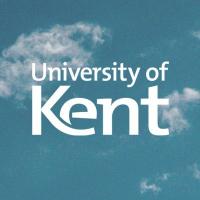Human Biology and Behaviour - BSc (Hons) with a Year Abroad
Do you want to know more about humans – how we evolved? Our anatomy and physiology? How we have sex and reproduce? Our hormones? Our behaviour? Our skeletons? What happens when we die?
Overview
As a Human Biology and Behaviour student at Kent you can study human evolution, human physiology and anatomy, skeletal biology and functional anatomy, psychology and behaviour of humans and non-human primates, and forensic anthropology. This unique and exciting course explores what it means to be human, equipping you with a suite of transferable skills and advanced training in research methods that prepares you to be strongly competitive for employment opportunities or for further study.
Typical questions you may explore include: Why is sex enjoyable? Why is there skin colour variation in humans? Can we detect human ovulation? How is behaviour dependent on anatomy? Where and how did humans evolve? Do monkeys have language? What are friends for (and why do we sometimes fall out with them)? How does your nervous system work? How does disease affect the body? What parallels can we drawn between human biology and that of apes and monkeys? Do ‘natural-born athletes’ really exist? How can we tell a person’s age at death just from their bones? When and where did Neanderthals and humans interbreed?
This course appeals to those with an academic background or interest in Human Biology, Biology, Medicine, Psychology, Anthropology, or Zoology (amongst others) or those working towards a career in science journalism and communication, museum work, conservation (especially primate conservation), forensic science, health care, and archaeology. Many of our students also go on to postgraduate study, and our graduates are well placed to apply for postgraduate entry into medical school.
The course is part of the Division of Human and Social Sciences, and the School of Anthropology and Conservation. We offer a friendly and cosmopolitan learning community with students from over 70 different nationalities and 45% of staff from outside the UK. You are taught by enthusiastic academics at the forefront of their fields, including experts in human sexuality and forensics, leading primatologists, and a team who excel in skeletal biology, anatomy and palaeoanthropology.
Campus Information
Canterbury
Our campus is surrounded by beautiful woodlands and overlooks the charming city of Canterbury. We have excellent transport links on campus or you can stroll into town on foot.
Intakes
- Sep
Application Processing Time in Days: 30
Minimum English Language Requirements
| English Level Description | IELTS (1.0 -9.0) | TOEFL IBT (0-120) | TOEFL CBT (0-300) | PTE (10-90) | |
|---|---|---|---|---|---|
| Expert | 9 | 120 | 297-300 | 86-90 | |
| Very Good | 8.5 | 115-119 | 280-293 | 83-86 | |
| Very Good | 8 | 110-114 | 270-280 | 79-83 | |
| Good | 7.5 | 102-109 | 253-267 | 73-79 | |
| Good | 7 | 94-101 | 240-253 | 65-73 | |
| Competent | 6.5 | 79-93 | 213-233 | 58-65 | |
| Competent | 6 | 60-78 | 170-210 | 50-58 | |
| Modest | 5.5 | 46-59 | 133-210 | 43-50 | |
| Modest | 5 | 35-45 | 107-133 | 36-43 | |
| Limited | 4 | 32-34 | 97-103 | 30-36 | |
| Extremely Limited | < 4 | < 31 | < 93 | < 30 |
Job Opportunity Potential
In these appointments, you will have up to 45 minutes to talk to a careers adviser about whatever career-related topic is important to you. Topics of conversation could include:
- I have no idea what I want to do after I graduate, what are my options?
- What jobs can I get with my degree?
- How do my skills fit in the labour market?
- I’m interested in taking a gap year after I graduate and I want to plan something employers will value.
- I’m thinking of leaving/changing my course and want to talk through the pros and cons.
- I’m interested in doing a masters or PhD, what are my options?
- I’m not sure how to disclose sensitive information to an employer.
A guidance interview is:
Impartial
A careers adviser will not recommend one route to you over another. They are there to help you explore the options objectively.
Challenging
Careers advisers may question your goals and help you to look at the disadvantages as well as the advantages. This is not to put you off, but to help ensure you have thought it through.
Supportive
The meetings are very informal and relaxed. Careers advisers are there to help you discuss things in a safe environment.
Part of a process
Career choice is a process not an event. A guidance interview is a good starting point but you will need to do further research and continuously update your action plan.
PSW Opportunity
- 2 Years PSW is applicable after the course. (Bachelors & Masters only)
Admission Requirement / Eligibility Criteria
Entry requirements
Qualification requirements
A good honours degree (minimum 2:2) from the UK or an equivalent internationally recognised qualification in a non-business-related discipline.
All applicants are considered on an individual basis and additional qualifications, professional qualifications and relevant experience may also be taken into account when considering applications.
India
For entry to a Kent postgraduate degree programme (Master’s), Indian students typically need to have completed a three or four-year undergraduate degree (Honours Bachelor degree or Professional degree) at an accredited university or college. General Bachelor degrees may sometimes be considered. Exact requirements will depend on the postgraduate degree you are applying for and the institution you have studied at.
- For programmes that require a 2:1, we usually ask for a First Class degree, a final CGPA of 6.0/10, or 60%. Students from top institutions may be considered with a high Second Class degree, a final CGPA of 5.5/10, or 55%.
- For programmes that require a 2:2, we usually ask for a high Second Class degree, a final CGPA of 5.5/10, or 55%
Some, but not all, postgraduate programmes require your undergraduate degree to have a related major. Some postgraduate programmes may require work experience in a relevant field or at a certain level.
Bangladesh
For entry to a Kent postgraduate degree programme (Master’s), Bangladeshi students typically need to have completed a Bachelor of Arts, Science and Commerce (Honours) or a Bachelor degree (Professional subject) awarded after four years of study by a ranked institution.
Exact requirements will depend on the postgraduate degree you are applying for and the institution you have studied at.
- For programmes that require a 2:1, we usually ask for a final CGPA of 3.5/4.0, or 70%
- For programmes that require a 2:2, we usually ask for a final CGPA of 3.0/4.0, or 60%
Applicants will also be considered with a Master of Arts, Science or Commerce from a recognised university.
- For programmes that require a 2:1, we usually ask for a final CGPA of 3.0/4.0, or 60%
- For programmes that require a 2:2, we usually ask for a final CGPA of 2.75/4.0, or 55%
Some, but not all, postgraduate programmes require your undergraduate degree to have a related major. Some postgraduate programmes may require work experience in a relevant field or at a certain level.
Sri Lanka
For entry to a Kent postgraduate degree programme (Master’s), Sri Lankan students typically need to have completed a Four-year Special Degree/ Bachelor of Arts/ Science or Professional Degree from a recognised university. Exact requirements will depend on the postgraduate degree you are applying for and the undergraduate degree you have studied.
- For programmes that require a 2:1, we usually ask for an Upper Second Class degree
- For programmes that require a 2:2, we usually ask for a Lower Second Class degree
Applicants may also be considered with one of the following:
- Four-year Special/Honours Bachelor of Technology Degree from a recognised institution with Upper or Lower Second Class, on a case-by-case basis
- Three-year General Degree from a recognised institution with First Class, on a case-by-case basis
- Postgraduate Diploma from a recognised university with a final GPA of at least 3.0/4.0
Some, but not all, postgraduate programmes require your undergraduate degree to have a related major. Some postgraduate programmes may require work experience in a relevant field or at a certain level.
IELTS (including IELTS Indicator) - PTE Academic - CAE/CPE - TOEFL iBT
Undergraduate degree - 6.5 overall (with a minimum of 6.0 in R&W; 5.5 in S&L) - 62 overall with 60 in each subtest - 176 overall (with a minimum of 169 in R&W; 162 in S&L) - 90 overall (with a minimum of 22 in R; 21 in W; 17 in L; 20 in S
- Course Code: BCL1
- Course Type: Full Time
- Course Level: Bachelors/UG Degree
- Duration: 04 Year
-
Total Tuition Fee:
84800 GBP
Annual Cost of Living: 9207 GBP
Application Fee: 50 GBP
Similar Programs
- Wildlife Conservation - BSc (Hons) with a Year in Professional Practice at University of Kent
- Wildlife Conservation - BSc (Hons) at University of Kent
- Sports Therapy and Rehabilitation - BSc (Hons) at University of Kent
- Sport and Exercise Science - BSc (Hons) with a Year in Industry at University of Kent
- Sport and Exercise Science - BSc (Hons) at University of Kent
- Sport and Exercise for Health - BSc (Hons) with a Year in Industry at University of Kent

